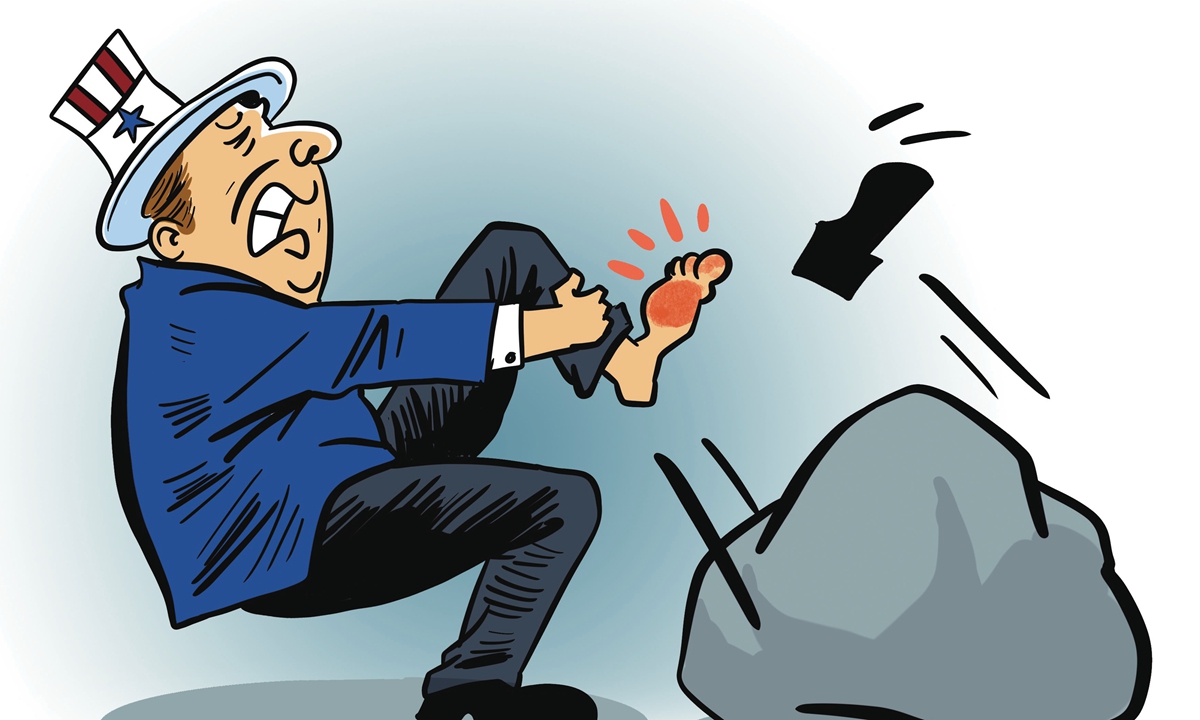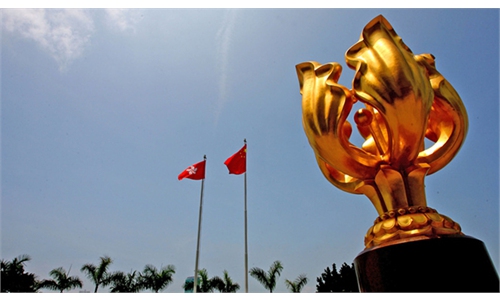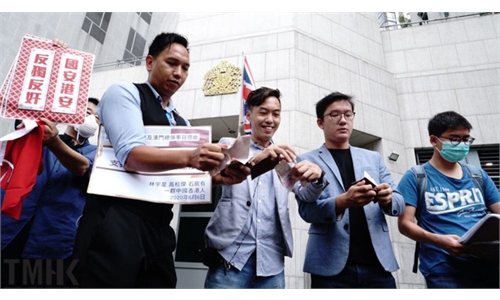COMMENTS / COLUMNISTS
Keeping HK's business, financial center status benefits US, Asia

Illustration: Luo Xuan/GT
Whatever the kind of geopolitical rivalry that the two powers, the US and China, are now engaging themselves in, the distinctive place of Hong Kong as a cultural and economic bridge between the East and West should be preserved and prolonged, which is widely believed to not only benefit the city itself but also the whole Asia-Pacific region, including the interests of the US.
It is a set policy that authorities in Beijing still keep faith in the Special Administrative Region (SAR)'s ideological plurality and economic vitality.
After introducing the high-profile national security law for the SAR aimed to reinforce China's territorial integrity and awing the secessionists there, the country's leaders have reaffirmed their wish to uphold the political structure of the "one country, two systems" in the city.
What the general public in the vast Chinese mainland abhor the most is the violent protests and ransacking riots that had convulsed Hong Kong nearly every weekend in the second half of 2019 - identical to what has been engulfing dozens of US cities in the past two weeks. The chaos, violence and destruction of public and private property shouldn't have a place in Hong Kong, or anywhere in the world, and needs to be stopped by a powerful law.
To put a lid on street violence, the Trump administration should have understood the legislation by China's NPC, the country's top lawmaker. However, Trump vowed on May 30 to "take action" to end the Asian financial hub's special trade and customs privileges, and that it would consider "taking necessary steps to sanction the Hong Kong and Chinese officials responsible for the bill".
By public targeting the NPC's legislation, the US government has irked the Chinese people by seriously and wantonly interfering in China's internal affairs. The measures to be detailed and enforced by Washington will hamstring Hong Kong's economy, and devastate China-US relations.
In addition, up to 90,000 American high-paid jobs and trillions of US financial investment assets in Hong Kong will be compromised.
And, US businesses alone are likely to be harmed by the Trump administration's "decoupling" Hong Kong policy. Other countries, including many European governments, will encourage their banks and companies to fill the void if the Americans pack up and go.
The opportunities in Hong Kong, buoyed by and integrated into China's "Greater Bay" economic powerhouse, are bountiful. Lately, the US government's discriminating policy against US-listed Chinese stocks is driving more high-tech Chinese companies - including Alibaba, JD.com, Netease - to migrate to Hong Kong's stock market, which will naturally back up Hong Kong's position as a financial hub. So the city's charm will not dwindle.
European Union foreign policy chief Josep Borrell said the EU has a "strong stake in the continued stability and prosperity" of Hong Kong.
The EU's statement carries weight and is noticed by Beijing. Like what the central government has said and done in the past 23 years since the city's return from a British colony to China's administration in 1997, the mainland has been bolstering the city's "stability and prosperity".
The Trump government, perhaps, is exercising some caution too.
It has been "vague" on what measures or sanctions it will take to engage the NPC's national security legislation. Maybe it's pondering an "appropriate response" that will not endanger the massive US interests in Hong Kong, at a time when its domestic economy is reeling in a morbid recession, and the Covid-19 public health crisis hasn't been contained yet.
And, Hong Kong administrators are sending a nuanced signal to the White House too. "For some countries that have had a high-profile response and claimed they will take military action (against street rioters)... They are very concerned about their own national security, but regarding our national security... they hold a different and distorted view," said Hong Kong Chief Executive Carrie Lam.
So, the US should not worry about the national security legislation which will only reinforce Hong Kong's stability and safeguard its business-friendly environment. Like Beijing and Washington have agreed through successful talks to keep some of their flights open while at the same time preventing the Covid-19 spread, the two sides could also resolve the diplomatic bust-up over Hong Kong.
The author is an editor with the Global Times. bizopinion@globaltimes.com.cn



